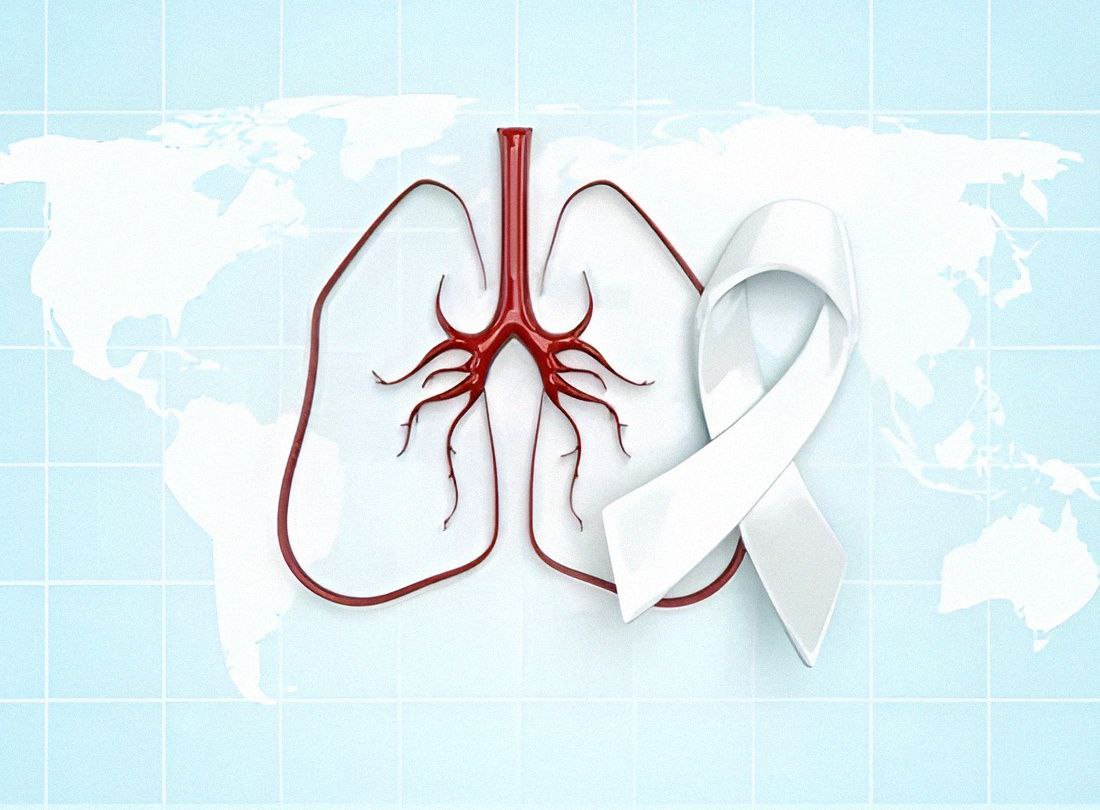
Introduction
Every year, on August 1st, the global community comes together to observe World Lung Cancer Day, a poignant reminder of the devastating impact of this debilitating disease on individuals, families, and communities worldwide. As the leading cause of cancer deaths globally, lung cancer claims the lives of over 1.8 million people annually, leaving behind a trail of heartbreak and loss. Yet, despite its staggering prevalence, lung cancer remains one of the most misunderstood and stigmatized forms of cancer. On this special day, we take a moment to shine a light on the struggles, the triumphs, and the hope for a brighter future as we unite to raise awareness, promote education, and support those affected by this devastating disease.
The History of World Lung Cancer Day
World Lung Cancer Day is observed on August 1st every year to raise awareness about lung cancer, its causes, symptoms, diagnosis, treatment options, and the importance of early detection. Here’s a brief history of how this day came into being:
The Need for Awareness: Lung cancer is one of the leading causes of cancer deaths worldwide, accounting for approximately 1.8 million deaths annually. Despite its high mortality rate, lung cancer often receives less attention and funding compared to other types of cancer. This lack of awareness and understanding contributes to late diagnoses, poor treatment outcomes, and a significant burden on patients, families, and healthcare systems.
The International Association for the Study of Lung Cancer (IASLC): In 1972, a group of thoracic oncologists and researchers founded the IASLC to promote the study and treatment of lung cancer. The organization aimed to bring together experts from around the world to share knowledge, advance research, and improve patient care.
The Concept of World Lung Cancer Day: In the early 2000s, the IASLC recognized the need for a dedicated day to raise awareness about lung cancer. The organization wanted to create a platform to educate the public, healthcare professionals, and policymakers about the disease, its risks, and the importance of early detection and treatment.
The First World Lung Cancer Day (2012): On August 1, 2012, the IASLC launched the first World Lung Cancer Day. The event was designed to coincide with the IASLC’s annual World Conference on Lung Cancer, which brings together experts from around the world to share the latest research and advancements in lung cancer treatment.
Growing Momentum: Since its inception, World Lung Cancer Day has gained momentum, with increasing participation from healthcare organizations, patient advocacy groups, and individuals worldwide. The day is marked by awareness campaigns, educational events, fundraising activities, and social media initiatives to promote lung cancer awareness and education.
The primary objectives of World Lung Cancer Day are to:
- Raise awareness about lung cancer, its causes, and its symptoms.
- Promote early detection and screening for high-risk individuals.
- Encourage research and the development of new treatments and therapies.
- Support patients, families, and caregivers affected by lung cancer.
- Advocate for increased funding and resources for lung cancer research and care.
Global Impact: World Lung Cancer Day has become a significant event in the global health calendar, with activities and events taking place in over 30 countries. The day has helped to increase awareness, reduce stigma, and promote a better understanding of lung cancer, ultimately contributing to improved patient outcomes and survival rates.
World Lung Cancer Day was established by the IASLC in 2012 to raise awareness about lung cancer, promote early detection, and support patients and families affected by the disease. The day has grown in popularity and impact, with a growing number of organizations and individuals participating worldwide.
How to Celebrate World Lung Cancer Day
World Lung Cancer Day is observed on August 1st every year to raise awareness about lung cancer, its causes, symptoms, and treatment options. Here are some ways to celebrate World Lung Cancer Day:
1. Wear White: Wear white clothing or a white ribbon to show your support for lung cancer awareness.
2. Share Your Story: Share your personal experience or the story of a loved one who has been affected by lung cancer on social media using hashtags like #WorldLungCancerDay and #LungCancerAwareness.
3. Educate Yourself: Learn about lung cancer, its risk factors, symptoms, and treatment options. Share your knowledge with others to spread awareness.
4. Organize a Fundraiser: Organize a fundraiser or participate in a charity event to raise money for lung cancer research, awareness, and patient support.
5. Share Infographics: Share infographics and informative posts on social media to raise awareness about lung cancer and its impact.
6. Support a Lung Cancer Organization: Donate to or volunteer with a lung cancer organization, such as the Lung Cancer Alliance or the American Lung Association, to support their efforts in raising awareness and funding research.
7. Encourage Quitting Smoking: Encourage smokers to quit smoking, as it is a major risk factor for lung cancer. Offer support and resources to help them quit.
8. Create a Social Media Campaign: Create a social media campaign using hashtags like #LungCancerAwareness and #WorldLungCancerDay to raise awareness and encourage people to share their stories and experiences.
9. Host a Lung Cancer Awareness Event: Host an event, such as a seminar, workshop, or conference, to raise awareness about lung cancer and provide education and support to those affected by the disease.
10. Encourage Early Detection: Encourage people to get screened for lung cancer, especially if they are at high risk, and promote early detection and treatment.
By celebrating World Lung Cancer Day, you can help raise awareness about the disease, promote early detection and treatment, and support those affected by lung cancer.
The Importance of Early Detection for Lung Cancer
Early detection is crucial for lung cancer, as it significantly improves treatment outcomes and survival rates. Here are some reasons why early detection is important for lung cancer:
1. Improved Survival Rates: According to the American Cancer Society, the 5-year survival rate for lung cancer patients diagnosed at an early stage (Stage I) is around 49%, compared to 21% for those diagnosed at a later stage (Stage IV).
2. Better Treatment Options: Early detection allows for more effective treatment options, such as surgery, which can be curative for early-stage lung cancer. In contrast, later-stage lung cancer often requires more aggressive and less effective treatments, such as chemotherapy and radiation therapy.
3. Reduced Morbidity: Early detection and treatment can reduce the risk of lung cancer-related morbidity, such as respiratory failure, cardiovascular disease, and other complications.
4. Increased Chances of Cure: Early detection increases the chances of a cure, especially for non-small cell lung cancer (NSCLC), which accounts for about 85% of all lung cancer cases.
5. Reduced Healthcare Costs: Early detection and treatment can reduce healthcare costs associated with lung cancer, as patients are less likely to require expensive and lengthy hospitalizations.
6. Improved Quality of Life: Early detection and treatment can improve the quality of life for lung cancer patients, allowing them to maintain their independence and continue with daily activities.
7. Detection of Other Conditions: Screening for lung cancer can also detect other conditions, such as chronic obstructive pulmonary disease (COPD), heart disease, and emphysema, which can be treated and managed more effectively.
Screening Methods
Several screening methods are available for lung cancer, including:
- Low-Dose Computed Tomography (LDCT): A non-invasive, low-radiation CT scan that can detect small nodules in the lungs.
- Chest X-Ray: A non-invasive imaging test that can detect larger nodules or tumors in the lungs.
- Sputum Cytology: A test that examines a sample of mucus from the lungs to detect abnormal cells.
- Blood Tests: Some blood tests, such as the EarlyCDT-Lung test, can detect biomarkers associated with lung cancer.
Early detection is critical for lung cancer, as it improves treatment outcomes, survival rates, and quality of life. If you or a loved one is at risk for lung cancer, talk to your healthcare provider about screening options and the importance of early detection.
Conclusion
As we mark World Lung Cancer Day, we’re reminded of the importance of unity, awareness, and action in the fight against this devastating disease. By shedding light on the realities of lung cancer and the impact it has on individuals, families, and communities worldwide, we hope to inspire a sense of hope and determination. Together, we can make a difference in the lives of those affected by lung cancer and work towards a future where no one has to suffer from this disease. Let us continue to raise our voices, support one another, and push for progress in the pursuit of a lung cancer-free world.

